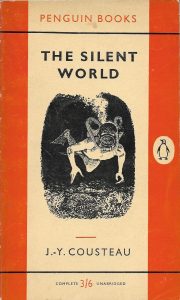Starting last month Ye Olde Bookseller began writing a monthly column for Ming Pao’s English language section called ‘Coming Up For Air’. For this month’s column — October 2018 — I talk about the challenges of running a community-oriented indie bookshop in an age of increasing political polarization. It is called ‘Striking the Right Balance’, and is reprinted here in its entirety with permission of the folks at Ming Pao.
Coming Up For Air: Striking the Right Balance
by Albert Wan
October 19, 2018
【明報專訊】The word on the street is that independent bookstores are experiencing a renaissance moment of sorts. Perhaps this is the result of screen fatigue. Too much time in front of screens has turned folks into shells of their former selves. The smell and feel of books and the shelves on which they are stored can rejuvenate the senses and restore the balance lost through excessive screen time. Perhaps the renewed interest in indie bookshops stems from the desire to support local businesses instead of large corporate chains or big box stores.
Personally, I think we are seeing more neighbourhood bookshops because there is a public need for them. We live in a time of government-imposed austerity and ever-widening gaps between the rich and the poor. Local governments invest far less than they once did in community projects whose main purpose is to enhance the well-being of the community, and whose success is not tied to the amount of private wealth and profit they create for a select few.
More libraries are reducing their hours or closing altogether. Fewer community spaces — ones where you or I can visit and hang out in without being compelled to buy anything — are being maintained, expanded and built. This is not just happening in Hong Kong. It is a worldwide trend. Independent bookshops can step in to fill at least part of that void.
But what does it mean to be a bookshop that serves the needs of the community? I’ve spoken previously about hosting public events and fostering a welcoming environment where folks from all walks of life can feel comfortable and relaxed hanging out in a space filled with good books and good company. Those are obvious contributions we should make as an indie bookshop as far as we’re concerned, at least in the sense of having to do them. So we try to do them well.
Being an independent bookshop also means having an identity, however. The difficulty lies in forging that identity but also serving the largest cross section of the community that we possibly can. The two can and sometimes do clash.
For example, once we shared an interview of Xiaolu Guo, a Chinese writer. Guo spoke about her dislike of Dickens and his novels and argued that many Anglophone writers were over-rated, but she also praised works by writers such as Germaine Greer, Marguerite Duras, and Roland Barthes.
The interview was conducted by The Guardian, not us, and Guo happened to be a Chinese dissident living in London. Despite all this our post immediately drew the ire of some folks, and we were accused, among other things, of having a “far-left, anti-white, feminist agenda.”
The message implied of course that we were taking sides or trying to advance a political agenda simply because we posted an article written by one of the world’s most respected news organisations. Not that there is anything inherently wrong with being on the left or advancing the cause of women’s rights.
But we see our job as booksellers to go beyond just taking sides in political debates. Of course, we will occasionally enter the fray when we see fit (more on that below). More often than not, however, we think we best serve the needs of the community by being the platform where others can tell their stories, voice their opinions, and find the information they need to wage their own battles.
There are, however, some core values and beliefs that we hold dear as owner-operators of an independent bookshop. We believe in the freedom of speech and the freedom of thought. We believe in human rights. We believe in the dignity of the individual. And we believe, as Orwell famously put it, that “our job is to make life worth living on this earth, which is the only earth we have”. Call it the Bleak House Books Bill of Rights if you will.
This is the starting point for every decision we make at Bleak House Books. Every event we host or book we stock needs to support these core principles. In most cases it’s an easy hurdle to clear. But there will be times when we come across something that fails our test, and we will say so. And if that means our bookshop is taking sides in a political debate then we plead guilty.
Available from Ming Pao via direct link here.

